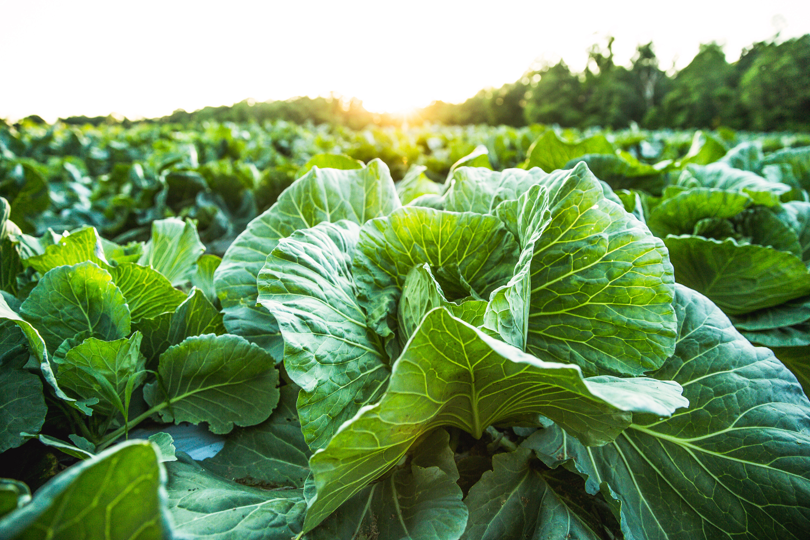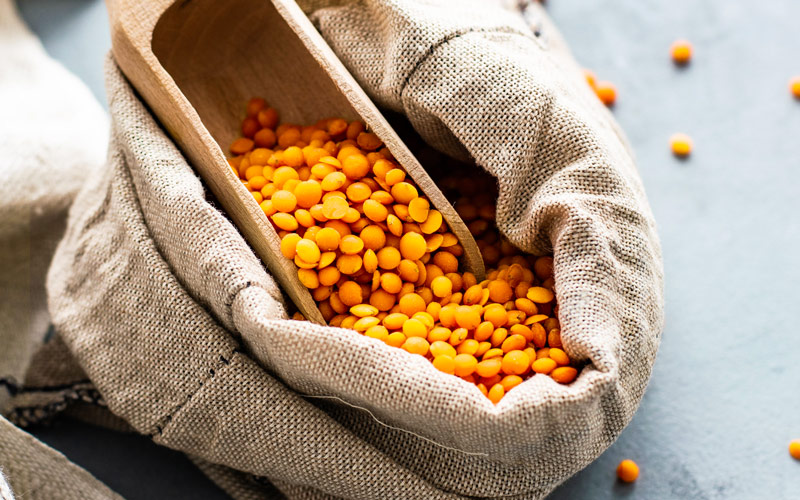Prioritising food security

European Community butter mountains are distant memories. In the 1970s and 1980s, the Common Agricutlural Policy (CAP) encouraged production of a range of foodstuffs for which there was no natural market and masses of goods were holed up in massive stores as a mechanism to directly support farming incomes.
Such policy was a failure and nearly two generations on the European Union has evolved its framework, trying to link output to wider priorities such as environmental change. Such a context is not going down especially well with many farmers in the EU. Unlike their British counterparties they have been protesting across the bloc, including French producers setting blockages alight outside the distribution centres of Aldi & Lidl whilst also blocking the arteries of Paris with tractors.
Getting the balance between rural protection, farming incomes, and feeding nations is not an easy one. British governments have long held the view that affordable, nay cheap, food is a good policy outcome, nay priority. As such, the state in the UK has not really had much interest in or care about where the food that feeds the Brits comes from so long as it is available and reasonably priced.
All this is sort of fine and dandy when there are copious supplies of foodstuffs and society can support farmers and rural communities to the point that they do not disrupt everyday life with protests. However, the world of 2024 is not fine and dandy. There are a variety of very challenging issues to be confronted, which combined challenge the concept of secure food supplies.
Whether it is climate change due to the impact of man’s production of gases or just evolving weather patterns, extreme temperatures, rains, winds and droughts seem to be more frequent. The scope to materially hit harvests feels real. People are on the move too with some, many in fact, travelling to places where they are not really welcome, leading to evolving political narratives. In much of the old world, immigration is a key electoral issue in a world when more than half of the folks are voting in 2024, with populism, simple solutions to complex issues, gaining the ‘X’ on the ballot sheet.
War is now also with the old world too, there have been many battles in the newer world for many years. Ukraine is a game changer for global politics, military strategy, and potentially food systems, as one of the world’s leading soft commodity producers. Russia’s motives do not look comfortable for many nations in the east of Europe. Ukraine rests alongside tension in the Middle East that have spread from Gaza/Israel to Yemen. Meanwhile, a China where no one believes that GDP is growing by 5% per annum has been more expansionary and aggressive under XI, so creating a network of potential military hot spots in the Far East, the notable being Taiwan, the outcome of which could be truly awful.
All of these pressures are live as the world continues to settle from the Coronavirus pandemic; remember those days when the whole of Britain, Boris Johnson’s kitchen aside, was locked in? But it would be foolhardy to suggest that biosecurity is now nothing to worry about.
Amidst all of these forces, how secure is Britain’s food supply now? Is the UK Government aware, concerned or prepared for challenges to food production and distribution and so supplies? And what policies, contingencies even, is the British state taking to bolster the visibility around food supplies, and supplies that conform to an array of demands, which embrace their own costs, around animal welfare, soil health, sustainability and labour processes.
The British Government has since the late Gordon Brown days progressively de-rated the capability, value and reputation of the United Kingdom. The political class, which include the Civil Service, is not world class as is often trotted out, indeed, at times it is questionable as to whether it is fit for purpose. On the important questions can the UK defend and feed itself, the answers are likely to be disconcerting. And yet, the question is rarely asked.
The pandemic, Ukraine, dry weather in Morocco and Spain (remember cucumber& tomato shortages), have all been shots across the bows of the domestic food system, where the participants have had to ‘get on with it’, in the face of public policy that is more interested in virtue signalling and often irrelevant trivia than meaningful matters.
I think the UK needs a food policy where it starts to consider the productive capability of its land mass, how we can produce more in modern ways across the food categories, how public procurement can feed such processes, how the nation can be educated through public information programmes on the true value of the food we eat. As such, how can we be more secure on the food front.
There can be a better way ahead for the British food system, end-to-end, so that each component can thrive. However, a competent political system is necessary to do so, one where food policy embraces the basics of how much food do we need, how should it be produced and from where can we find it, including maximising our own primary capability.
The governments of the UK would do well to prioritise food security.
Coriolis is a mechanism through which food manufacturers can produce more from less, be more efficient, more productive, and more effective too. If you want to know more, give Mark Dudley a shout.
Dr Clive Black
Senior Advisor
Coriolis Consulting
February 2024








